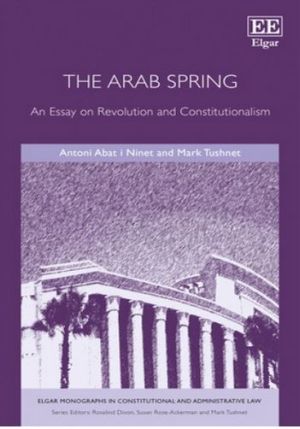
Approaching the concept of Islamic constitutionalism from a comparative perspective, this thought-provoking study by Antoni Abat i Ninet and Mark Tushnet, uses traditional Western political theory as a lens to develop a framework for analysing the events known as the Arab Spring.
Writing with clarity and insight, the authors place western and Arabic traditions into a constructive dialogue. They focus on whether we can develop a ‘theory of revolutions’ that helps us understand events occurring at divergent times and geographically separated locations. This question is meticulously analysed through the detailed examination of specific developments relevant to the ideas of revolution and constitutionalism in several nations affected by the Arab Spring. Case studies focus on Morocco and Libya as examples of unsuccessful revolutions, as well as Tunisia and Egypt. These lead the authors to consider the nature of constitutionalism itself and the concept of illiberal but non-authoritarian constitutions: a particularly pressing concern given the prominent contemporary discussions of the role of shari’a in post-Arab Spring constitutions.
The Arab Spring will offer new insights to scholars, researchers and students of law and the political sciences, in particular those focusing on theories of revolution, democracy, constitutional law, Islamic constitutionalism and legal theory.